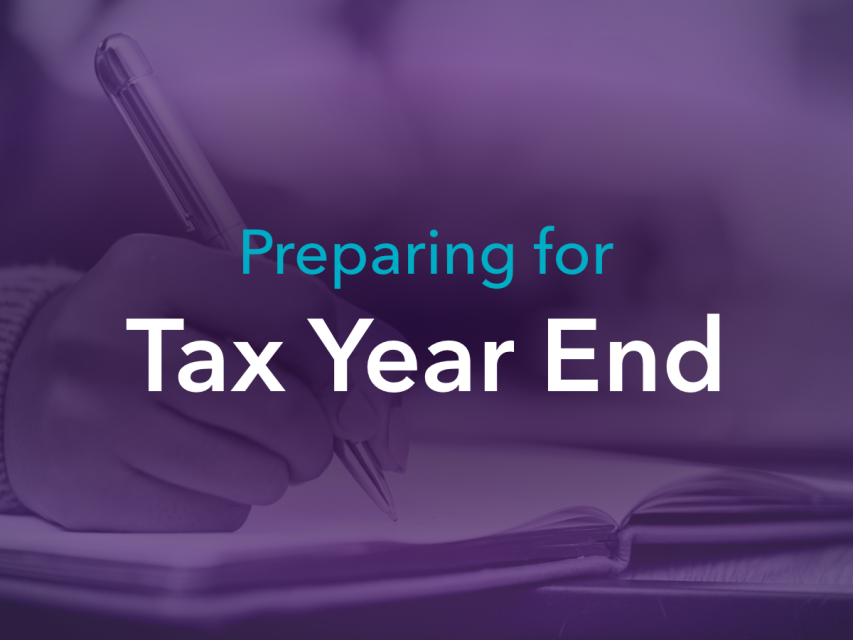Understanding different types of taxes in retirement
Retirement is often viewed as a time to relax and enjoy the beginning of a new chapter, however, it also comes with important financial considerations, especially when it comes to taxes.
Understanding the various taxes you might face in retirement can help you plan more effectively and keep more of your hard-earned money.
Here’s a breakdown of the main types of taxes retirees should be aware of.
Income Tax
Even in retirement, you may still have taxable income. Here are the common sources and how Income Tax applies:
State Pension: The State Pension is liable to Income Tax. However, retirees whose only income is the State Pension may not have to pay any Income Tax in practice as their annual income will fall below the personal tax allowance (the amount of Income Taxpayers may receive tax-free.) This is currently £12,570 for the 2025/26 tax year. This may change if the State Pension increases to a level above the personal tax allowance.
Private Pensions: Withdrawals from defined contribution pensions (like personal pensions or SIPPs) are taxable. The first 25% is usually tax-free, but the rest is taxed as income at your marginal rate.
Annuities: Normally, up to 25% of the pension value you’d like to access can be paid as a tax-free cash lump sum. You can use the rest to purchase an annuity. Income from annuities is taxed as earnings at your marginal rate.
Other income: Rental income, dividends, and savings interest can also contribute to your taxable income.
Capital Gains Tax (CGT)
If you sell assets such as shares, investment funds, or property (other than your primary residence), you may have to pay Capital Gains Tax on the profit.
You only have to pay Capital Gains Tax on your overall gains above your tax-free allowance, known as the Annual Exempt Amount. The Capital Gains tax-free allowance for 2025/26 is:
For 2025/26, the rates are as follows:
- 18% on gains from most assets, including residential property. This rate is paid by basic-rate taxpayers.
- 24% on gains from most assets, including residential property, when the individual is a higher-rate taxpayer.
Inheritance Tax (IHT)
While not a tax you pay directly in retirement, Inheritance Tax is an important consideration for estate planning.
The standard Inheritance Tax rate is 40% and this is only charged on the part of your estate that’s above your available nil rate band (including a residence nil rate band, if applicable).
The standard Inheritance Tax nil-rate band is £325,000, with an additional main residence nil-rate band of up to £175,000 if you pass your home to direct descendants.
Planning during retirement can help reduce the amount of Inheritance Tax your beneficiaries might owe later and ensure that your wealth in preserved for future generations.
How can you reduce your Inheritance Tax bill?
- Through careful planning
- Maintaining an up-to-date Will
- Seeking professional advice
- Lifetime gifts
- Trusts
Planning for your legacy can be complex, so it’s always recommended to speak to a financial adviser.
Other taxes to consider
Dividend Tax
Dividend income is normally subject to tax on investments held outside an ISA or pension.
Retirees may receive dividends from sources such as:
- A General Investment Account (GIA)
- Shares held directly
- Investment funds or trusts (e.g. equity income funds)
- Company shares if you’re a business owner (even post-retirement)
The dividend allowance is the amount of income from dividends that an individual can earn before tax is incurred. Everyone has a tax-free dividend allowance of £500 a year (correct as of 2025/26 tax year) alongside your personal allowance. You only pay tax on any dividend income above the dividend allowance.
It also depends on whether HMRC is already collecting tax from other income sources (like a private pension).
Savings interest
You can earn up to £5,000 per tax year of savings interest tax-free. This is known as the starting rate. However, if you earn £17,570 or more from other sources, then you won’t be eligible for the starting rate.
Savers also have access to their personal savings allowance, even if they have their full starting rate available. This is £1,000 for basic rate taxpayers and £500 for higher rate taxpayers. Additional rate taxpayers have no personal savings allowance.
Tax planning tips for retirement
- Maximise tax-free allowances:Use your personal allowances, Dividend Allowance, and Capital Gains Allowance wisely
- ISAs: Savings and investments in ISAs grow tax-free and withdrawals are not taxed
- Pension drawdown planning: Plan your withdrawals to avoid pushing yourself into a higher tax bracket
- Seek professional advice: Tax rules can be complex and change frequently, so consulting a financial adviser can be beneficial
While retirement is a new chapter, taxes remain an important factor in your financial wellbeing. Understanding how different types of tax apply – from Income and Capital Gains to Inheritance Tax – can make a big difference to your financial comfort and legacy. With careful planning and smart use of tax allowances, you can potentially minimise your tax burden and make the most of your retirement income.
With investing, your capital is at risk. Investments can fluctuate in value and you may get back less than you invest. This material is not a personal recommendation or financial advice and the investments referred to may not be suitable for all investors.
Tax is subject to an individual’s personal circumstances and tax rules can change at any time.
You should ensure your contribution does not result in your total ISA contributions within the tax year exceeding £20,000. ISA eligibility and tax rules apply.
The Financial Conduct Authority do not regulate Will Writing Tax Advice and Estate Planning.
Pension eligibility and tax rules apply. You should ensure your contribution does not result in your total Pension contribution within the tax year exceeding £60,000 or 100% of your earnings, whichever is lower.
True Potential Wealth Management is authorised and regulated by the Financial Conduct Authority. FRN 529810. Registered in England and Wales as a Limited Liability Partnership No. OC356611.
True Potential Investments LLP is authorised and regulated by the Financial Conduct Authority. FRN 527444. Registered in England and Wales as a Limited Liability Partnership No. OC356027.
True Potential LLP is registered in England and Wales as a Limited Liability Partnership No. OC380771.






